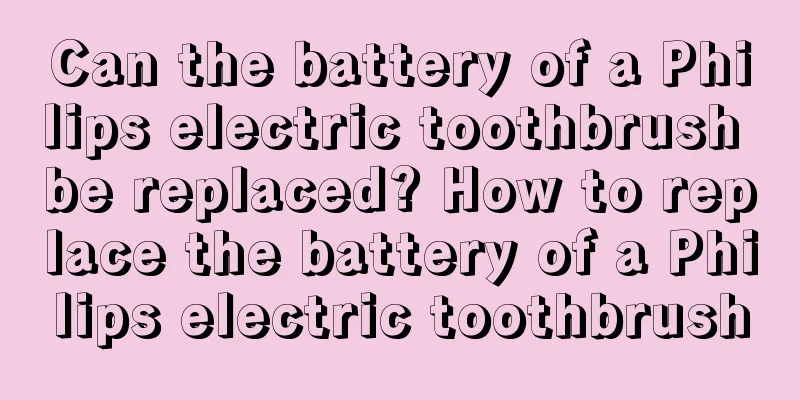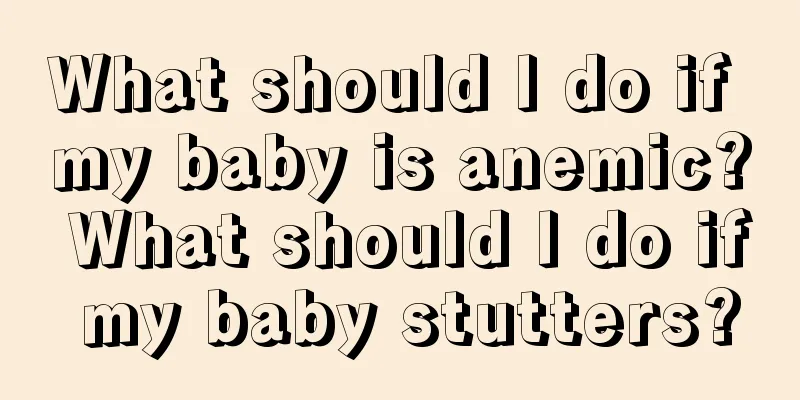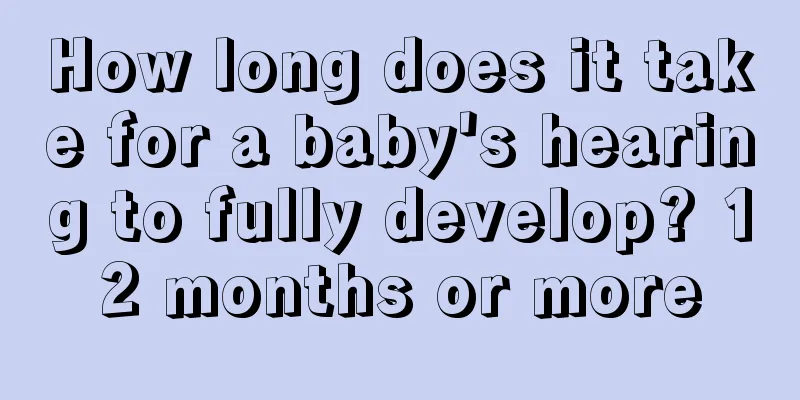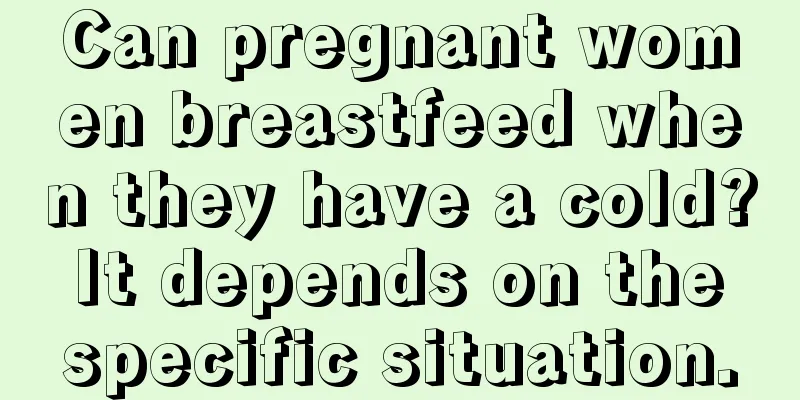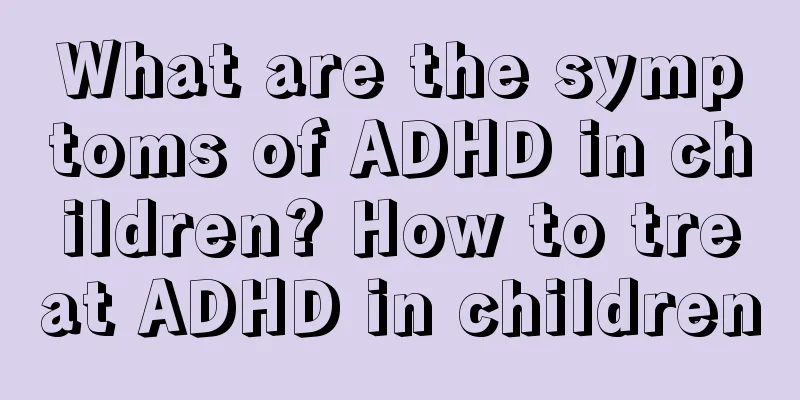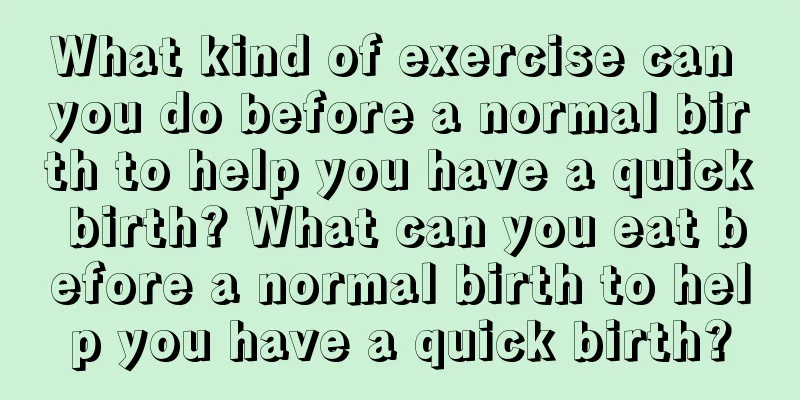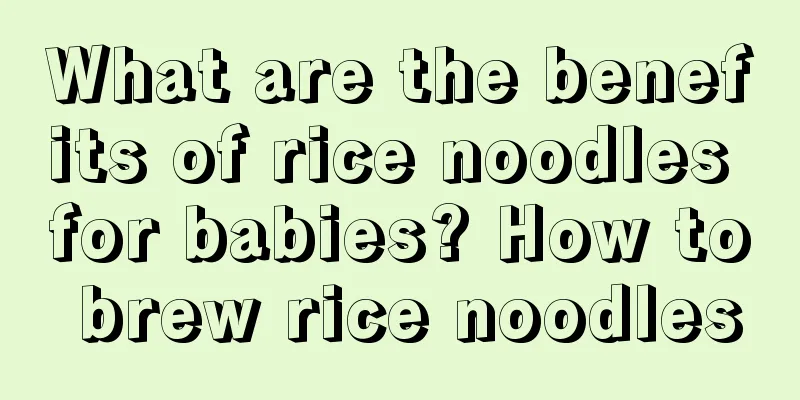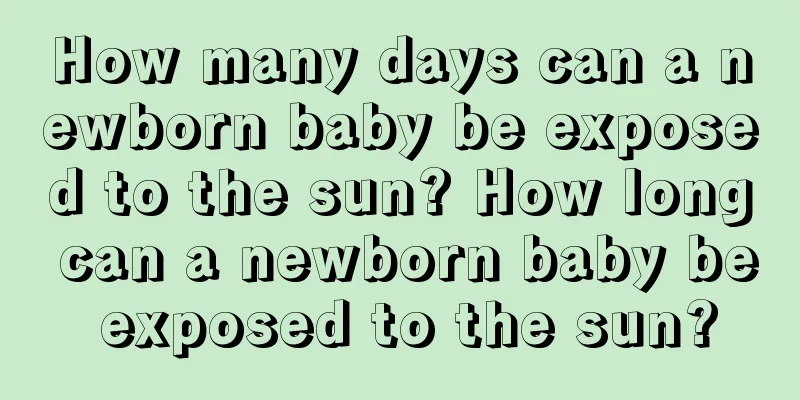At what age can a baby use a pacifier? Can a baby sleep with a pacifier in his mouth?
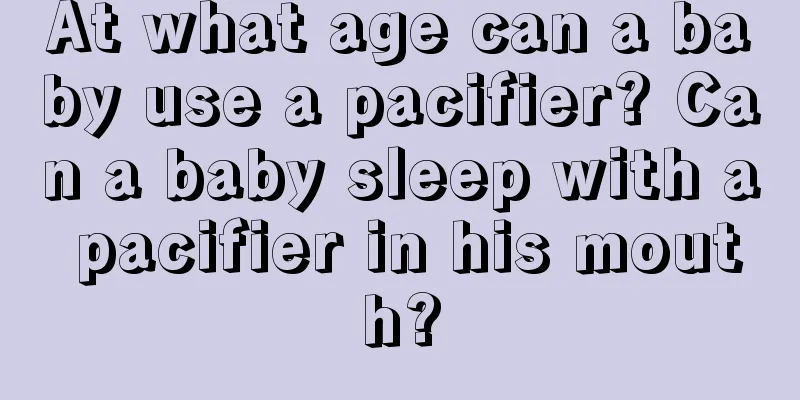
|
The function of a pacifier is to soothe the baby's emotions and increase the baby's sense of security, but the pacifier cannot be used by the baby as soon as it is born. So at what age can the baby use a pacifier? How old can babies use pacifiers?Generally speaking, pacifiers are used after the age of 3 weeks or one month. As the name suggests, pacifiers are not used to fill children, but to give children spiritual comfort when they are not hungry, and to soothe them. They are especially used when children are crying and restless, or have poor sleep. Generally, after a child is 3 weeks or one month old, the mother does not have much time to accompany the baby, or she also needs a certain amount of rest. She can choose a pacifier to give the child a self-comfort process. During the teething period of May to June, the gums feel itchy, and the child needs something harder to suck and chew, and a pacifier can also play this role. Can babies sleep with pacifiers?After the baby falls asleep, it is recommended to take off the pacifier and not let the baby hold the pacifier all night. Because after the baby falls asleep at night, if the baby holds the pacifier all the time, it may block the baby's mouth and nose and cause suffocation. Moreover, sleeping with a pacifier in the mouth for a long time will also affect the development of teeth and mouth shape. The dangers of babies sleeping with pacifiers1. Affecting the beauty of the child's mouth: Sleeping with a pacifier and constant sucking will affect the development of the oral cavity, causing deformities in the upper and lower jaws, and affecting the shape of the mouth and the beauty of the face. 2. It may cause abdominal pain: If the baby sucks on a pacifier while sleeping, the child will always be sucking and swallow too much air, causing air distension in the stomach, which will increase the possibility of vomiting and sometimes cause abdominal pain. What are the dangers of pacifiers?1. Impact on bite: Dentists believe that long-term use of pacifiers will affect the development of the baby's upper and lower jaws, and will also cause the baby to form a high palate, leading to malocclusion of the upper and lower teeth and an unsightly lip appearance. 2. Intake of too much gas: Sucking on pacifiers causes children to ingest too much gas, which can easily cause abdominal distension and, in severe cases, intestinal cramps. 3. Affecting parent-child communication: It becomes a substitute for the mother to perfunctorily deal with the baby. The baby will look for the pacifier as soon as he cries, and the pacifier replaces the hugs and kisses of relatives, which reduces the interaction between parents and children and makes the mother no longer understand the baby. 4. Cause infectious diseases: Children repeatedly suck on pacifiers. If they are not cleaned promptly or thoroughly, the pacifiers can easily become contaminated. Because children's immunity is not yet fully developed, it is easy to cause some infectious diseases. |
<<: How old should a baby be to stop using a pacifier? How can a baby stop using a pacifier?
>>: What can I eat to get rid of lochia the fastest? How to take care of lochia after childbirth?
Recommend
How to make your baby sleep longer at night without waking up
Newborns need regular sleep after birth, and what...
Why do children grind their teeth when they sleep? What is the reason for children grinding their teeth when they sleep?
Everyone has heard of children grinding their tee...
20 golden rules to teach your children the importance of motherhood
International education organizations have proven...
How to eliminate the fear of prenatal pregnancy
The day of delivery is coming soon. Expectant mot...
What are the side effects of ovulation medication for women?
More and more people are infertile, and many wome...
Can black mouthwash prevent tooth decay? Can black mouthwash be used for a long time?
Many consumers said that after buying Black Mouth...
What causes edema in pregnant women? What to do about edema during pregnancy
Many mothers who have given birth or are pregnant...
Can pregnant women drink ginger soup when they have a cold? Generally,
Pregnant women can drink ginger soup when they ha...
Is it good for children to sleep with the light on? Is it harmful for babies to sleep with the light on?
Many parents leave a light on in the bedroom to t...
Can pregnant women drink rice wine? Is it good for pregnant women to drink sweet wine?
Rice wine not only tastes good, but also has very...
When should we consider inducing labor? What kind of environment is best for confinement?
There are many things to consider after pregnancy...
What is good for pregnant women to eat? What fish is good for pregnant women to eat?
During pregnancy, the baby is in the mother's...
How to educate a disobedient child? Should a disobedient child be spanked?
Educating children is a very complicated and long...
How is Deyun milk powder? Which is better, full-fat or skim milk powder?
I believe many mothers have heard of Deyun milk p...
What does pedophilia mean? What should I do if I have a pedophilia?
We have seen some pedophiles in movies and TV sho...
